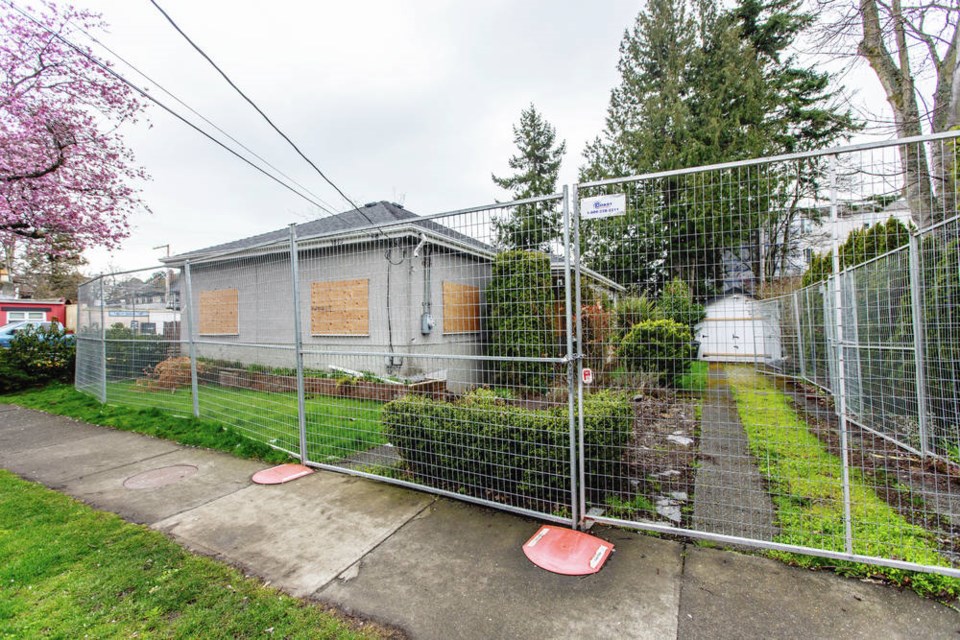The millions being spent during the pandemic by all levels of government to tackle the housing crisis is both money well spent and good value for taxpayers according to housing advocates and even some government watchdogs.
On the heels of a cluster of housing announcements in Victoria over the last two weeks — eight properties totalling more than $35 million, expected to provide more than 300 units of needed supportive housing — housing advocates say the public is being well served, even if governments are overspending.
“I do believe the social return on these investments is worth it. These are well invested dollars in our community and our society,” said Kelly Roth, executive director of the Greater Victoria Coalition to End Homelessness. “I appreciate the fact the governments are leaning into and doing the work that needs to be done.”
In its support for the government’s ability to find funding for housing, the Coalition has what many might consider an unlikely ally in the Grumpy Taxpayer$ of Greater Victoria.
John Treleaven, chair of the citizen’s advocacy group, which pushes for lower taxes and less waste, said governments have had little choice but to act to address the housing crisis and that can mean having to spend more than they wanted.
“The fact is there has been a long-term housing problem in Canada that has grown exponentially due to the current situation. COVID has revealed fissures we ignored for some time or we thought were not that serious — well, they were,” he said. “This is basic human need and we are a kind and generous people and we live in one of the wealthiest communities in the world in one of the wealthiest countries in the world. There is nothing we cannot afford in an emergency.”
Treleaven said that can mean governments have to overspend, as it appeared to do on some of the properties it picked up recently.
One of the recent purchases, 225 Russell St. cost $9.3 million. That’s a significant jump from the $3.4 million paid for the same property just a few months ago by a Victoria investor.
Some real estate insiders suggested the $9.3 million price was way out of line, but the province defended the deal saying it paid what the property was worth in its highest and best use.
A spokesman for the Attorney General Ministry, responsible for B.C. Housing, said an independent appraisal of the property was conducted by Phung Horwood on March 25, putting a value of $8.1 million on the property. “When the property was previously sold, the listing only included the price for the land and existing building on-site,” the spokesman said.
“Our acquisition of the property was unique, as it included $8 million not just for the land and building, but also for design and construction costs for the future conversion of the existing building into a 40-unit permanent supportive housing building, as well as renovations required to set up a temporary shelter for 70 people.”
A B.C. Housing spokesperson said its real estate team strives to purchase properties that reflect the best value for taxpayer dollars.
“A majority of the recent purchases in the Capital Regional District came in below the appraised value. If we do pay over the appraised value, it’s typically due to an urgent need for housing, a limited supply of a certain land or housing type, or a unique opportunity presented by the purchase,” it said in a statement.
“To mitigate a serious situation, governments may have to invest what could be seen as ‘above-asking,’ ” Treleaven said, noting no one questions the millions spent on things like fire halls and firefighters in the hope they are never needed.
“We never want them to leave the station, but we want to have them there.”
“Had we treated social housing the same way we would have been building social housing every year,” he said, adding governments are playing catch-up in the face of an emergency. “We are paying more because we have created a situation which was never designed to cope with the worst health and economic crisis we will ever experience.”
Roth noted the pandemic shone a very bright light on the housing crisis as people were required to shelter in place without having a place to do it. Normally, the homeless population tends to be more transient and less visible, she said.
“It’s always crisis that causes the reaction and you wish it wasn’t,” she said. “I don’t know why we’re like that as a society because we know so many things we should be doing but we don’t until we have a crisis. Then suddenly we do find ways of doing it because we have to.”
Roth said the new housing planned for the region is a huge step forward, and will give people who have been marginalized the chance to feel valued and no longer invisible.
“No one on the planet isn’t changed by someone caring for you.”
Treleaven said criticizing these kinds of decisions is counterproductive and badly timed, adding it’s only after a war has ended that you can determine who had the better generals and who used the better tactics.
“Now is not the time to criticize people who are in a position, including taxpayers, we never thought we would be,” he said. “We have to get through this and we have to work for everybody, most especially those who are most especially hit by this.
“And when it’s over, yes, there has to be some sober second thought. There has to be a root-and-branch look at how the country, our community and the province all relate to each other.”
> See the details of the property purchases here



